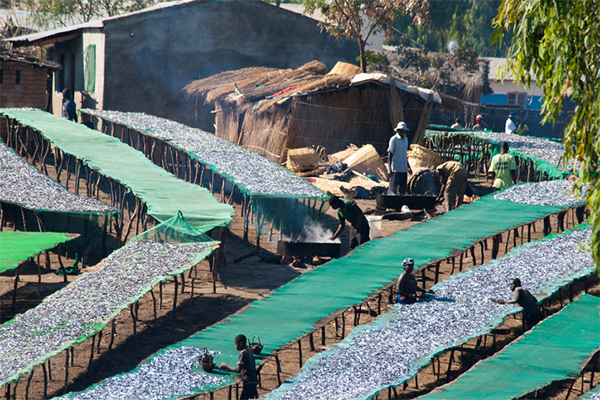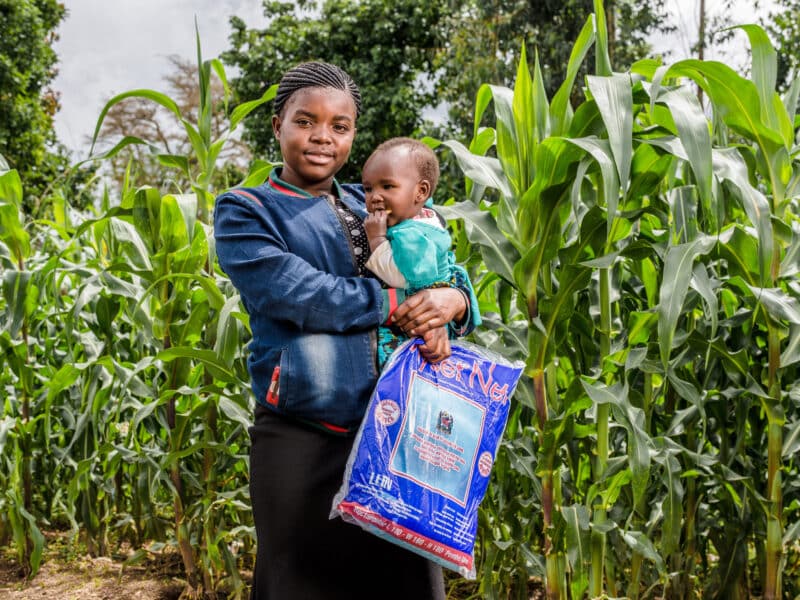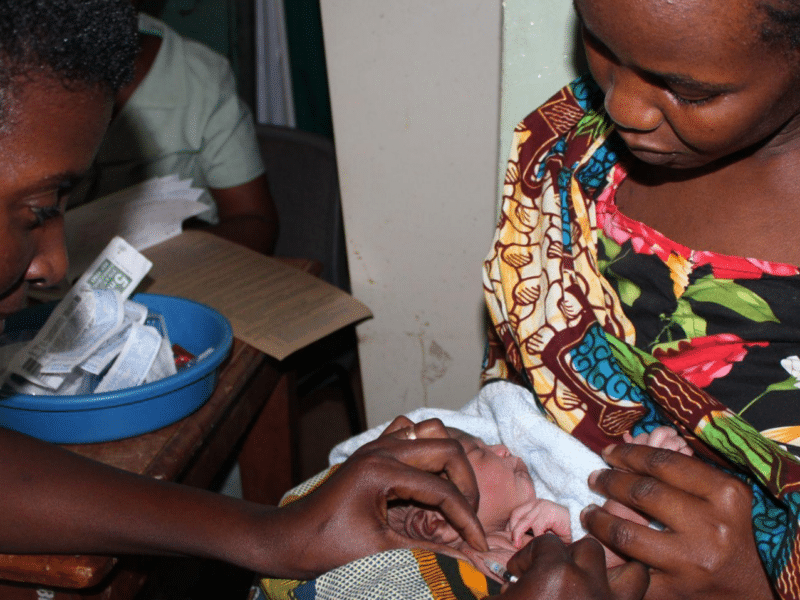Poverty and food insecurity are the main reasons why some fishermen in Malawi use mosquito nets as illegal fishing nets, an analysis conducted by the Johns Hopkins Center for Communication Programs has found.
“Everyone we spoke to knew it wasn’t a good idea and was technically illegal, but it’s not as bad as watching your kid go hungry,” says CCP’s Sara Berthe, MPH, who has led work into understanding net misuse under the VectorWorks project. “People who live along the lake don’t fish with mosquito nets because they want to. They do it because they are poor and hungry and mosquito nets are readily available.”
Mosquito nets are particularly harmful to fisheries because the holes are so small that they pick up not only fish big enough to eat or sell but also very small fish and even fish eggs, potentially harming the ecosystem. The nets, which are distributed for free in sub-Saharan Africa by VectorWorks and other organizations, are meant to hang over beds to help prevent malaria by protecting people from being bitten as they sleep by mosquitoes carrying malaria and other diseases.
CCP staff conducted the research at the request of the President’s Malaria Initiative (PMI), which wanted to better understand the issues surrounding net misuse. What they found was a complex problem that couldn’t be traced to a single cause, but one that touches fisheries management, health care, overpopulation, economics and more.
“The issues are beyond the capacity of any one sector to address,” says Matthew Lynch, PhD, who heads CCP’s malaria programs. “Everyone has a role to play.”
Along the Malawi side of Lake Malawi, where the economic situation is most dire, many make their living catching small sardine-like fish, drying them out and selling them. It is here that net misuse is most rampant. On the Tanzania side, which is far less densely populated, the use of mosquito nets for fishing is minimal, they found.
“In Malawi, middlemen walk through the communities and spend time near health facilities,” Berthe says. “When a pregnant woman comes out with her brand-new net, he offers her a small amount of money for it, $1, $1.50. She may figure she has a perfectly good net at home and needs the money more.”
While original speculation was that perhaps Malawian families had a glut of mosquito nets, allowing more easily for misuse, Berthe says that is not the case. The researchers were unable to determine the exact impact of the nets on the fisheries nor were they able to determine the exact impact on malaria prevalence. Malaria sickens an estimated 216 million people annually and kills about 445,000, most of them children in Africa.
VectorWorks has created a toolkit to assist USAID missions, donors and implementing partners in assessing potential net misuse for fishing through rapid assessments. The toolkit takes users from the beginning to the end of the assessment process, including an initial stakeholder assessment guide, a flow chart representing the overall process of the research, the expected results and programmatic implications.
Malawi and Tanzania have seen some success in their beach management units, community-based groups that monitor their local fishing grounds, making sure no one is violating catch size and other regulations. Lynch says that if such units were given access to fisheries and police enforcement authority, as well as data to inform appropriate planning, they could be helpful to creating more sustainable fisheries.
He says that the government in the past has decided to close the lake to fishing on the Malawi side for two months at a time to reduce the strain on the fish population, but those restrictions have been largely ignored by fisherman who need to feed their families.
A next step, Lynch says, should be to bring together people from all sectors in Malawi – health, fisheries management, livelihoods, food security and other government agencies – to develop a concrete solution that will not only reduce net misuse, but will help improve the livelihoods of citizens there. It’s not as simple as just giving everyone fishing nets instead of mosquito nets as that could cause another set of problems.
Getting community buy-in to any potential solution is key, he says, because people know that they are hungry now, which is more important to them in the short-term than how they may impact the future of the lake.
“To people in crisis, the mosquito nets are free and are an immediately available tool to solve an urgent need,” he says. “And the long-term consequences are not immediately visible.”





